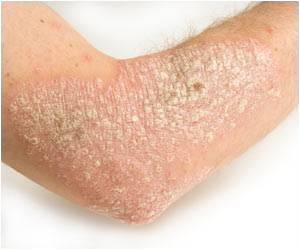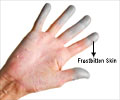
According to the Scleroderma Foundation, there are an estimated 300,000 people in the United States who have scleroderma and about one third of them have the systemic form. While both localized and systemic scleroderma cause hardening of the skin, systemic scleroderma also causes damage to the blood vessels, muscles, and internal organs. Scleroderma occurs when a person's immune system mistakenly attacks and destroys healthy body tissue.
Previous studies suggest that systemic scleroderma is more common, occurs at a younger age and is more severe in African-Americans than Caucasians. Researchers set out to examine if there was a difference in antibodies found in the blood to see if that might explain why African-Americans with the disease often do worse.
Virginia D. Steen, M.D., professor of medicine at GUMC, and her colleagues at Pittsburgh analyzed data from the Pittsburgh Scleroderma Database. Steen helped develop the database,which includes demographic, clinical, autoantibody, organ involvement and survival information for 203 African-American and 2945 Caucasian scleroderma patients seen at the University of Pittsburgh Medical Center between 1972 and 2007.
"Our findings show that African-Americans were more likely to have certain antibodies linked to severe complications such as severe pulmonary fibrosis and gastrointestinal involvement," explains Steen. "These complications tend to be the culprit for people who die from severe cases of scleroderma."
The findings show that African-Americans had higher frequencies of certain scleroderma specific autoantibodies compared to Caucasians: anti-U3-RNP (40 percent vs. 2 percent), U1-RNP (16 percent vs. 7 percent) and anti-topoisomerase (27 percent vs. 21 percent). Anti-topoisomerase auto-antibodies in scleroderma are associated with a higher incidence of pulmonary fibrosis (scarring of the lungs) and greater disease severity, and in this study, African-American patients with this antibody had more frequent and more severe fibrosis than the Caucasians with this antibody.
Advertisement
"This information can help empower patients and their doctors to act more aggressively, if appropriate, when the person with scleroderma has these antibodies associated with worse outcomes," concludes Steen. "We believe early aggressive intervention will improve outcomes."
Advertisement











